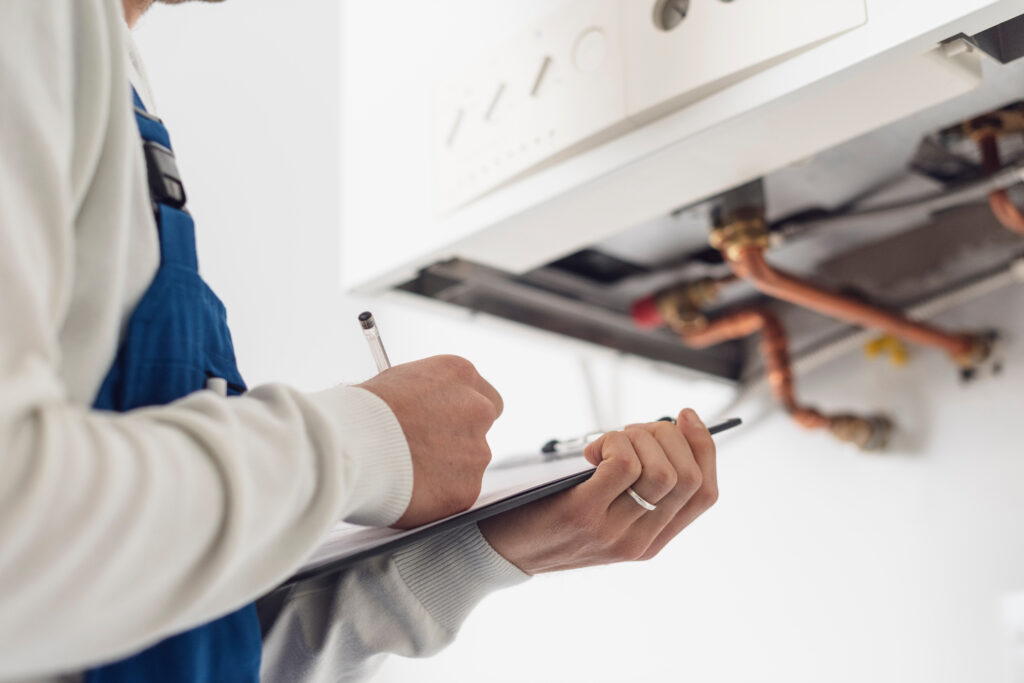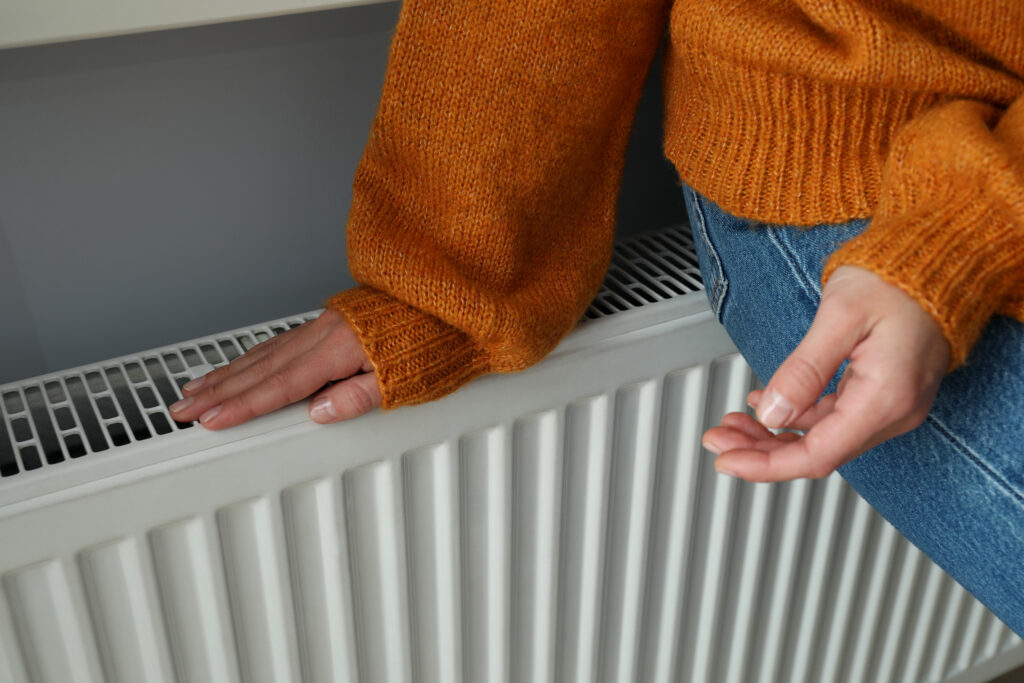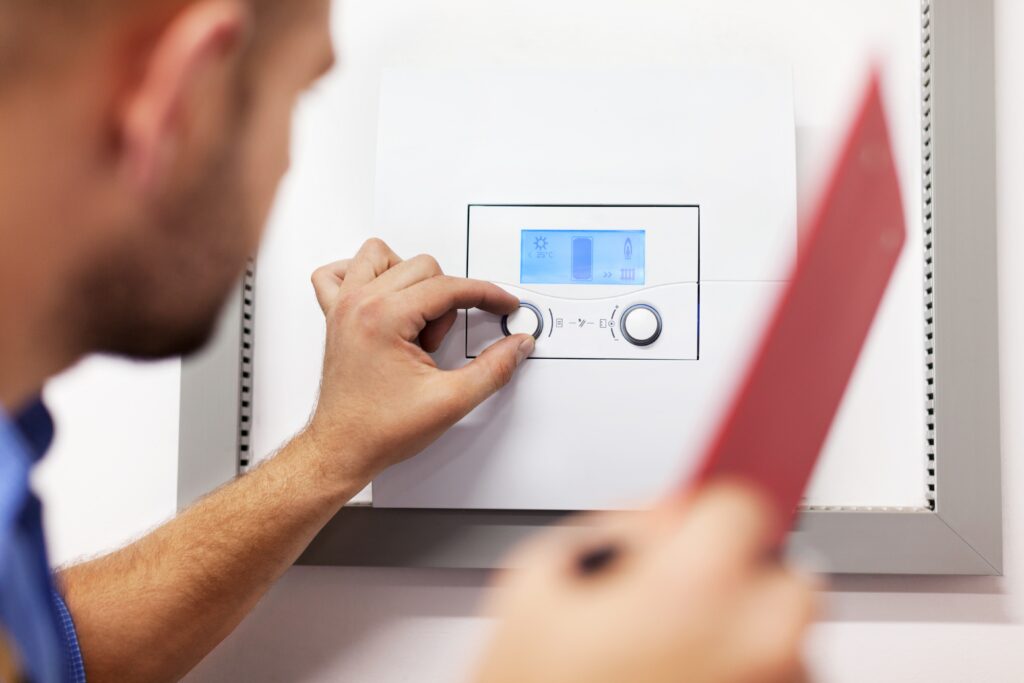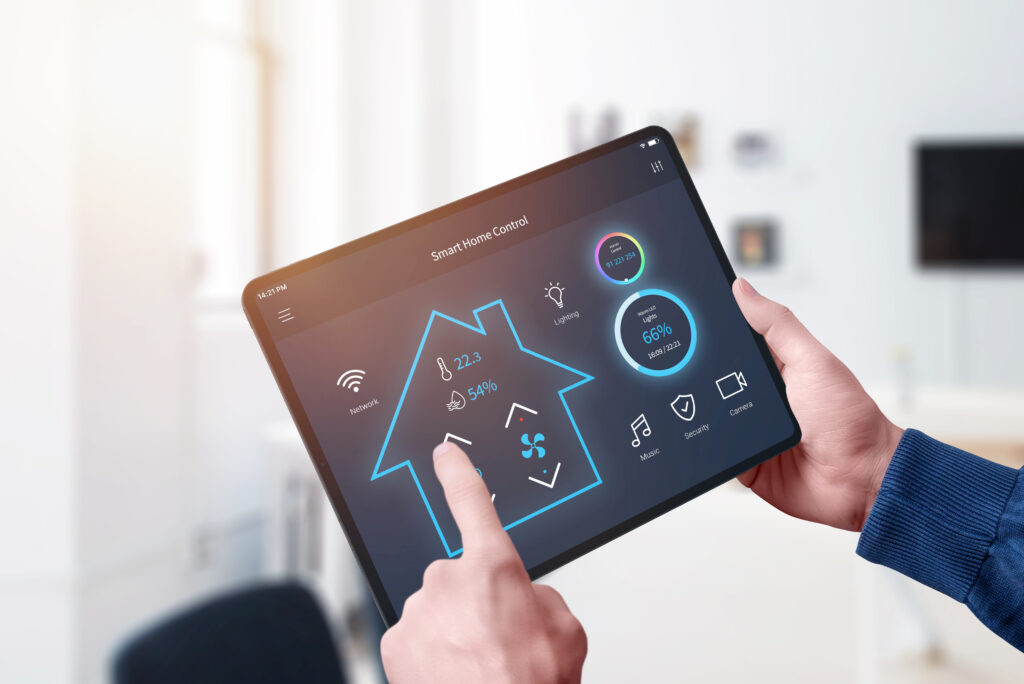Maintaining a boiler and heating system is crucial for ensuring a comfortable and warm home, especially during the chilly months in the UK. Regular maintenance not only extends the life of your heating system but also enhances its efficiency and safety. This comprehensive guide provides essential tips for keeping your boiler and heating system in top condition.
Understanding Your Boiler and Heating System
Getting Familiar with Your System
The first step in effective maintenance is understanding your boiler and heating system. In the UK, most homes have either a combi boiler, system boiler, or a conventional boiler. Each type has its specific maintenance needs. Familiarising yourself with your system, including its make, model, and basic operation, can be incredibly helpful.
Importance of the User Manual
Your boiler’s user manual is a treasure trove of information. It contains specific maintenance guidelines, troubleshooting tips, and safety warnings relevant to your model. Keeping this manual handy and referring to it regularly can be beneficial.
Regular Boiler Inspections
Visual Checks
Regular visual inspections of your boiler can help identify issues before they escalate. Look for any signs of leaks, corrosion, or damage. Ensure that the boiler flame is blue; a yellow or orange flame might indicate a problem.
Professional Annual Service
In the UK, it’s recommended to have your boiler serviced annually by a Gas Safe registered engineer. This comprehensive check ensures your boiler operates safely and efficiently. The engineer will check the boiler’s components, clean vital parts, and test its functionality.
Heating System Maintenance
Bleeding Radiators
Bleeding radiators is a simple yet effective maintenance task. It involves releasing any trapped air inside the radiators, ensuring they heat up properly. This process improves the efficiency of your heating system and should be done at least once a year.
Checking Pressure Levels
Monitoring the pressure gauge on your boiler is crucial. The pressure should typically be between 1 and 1.5 bar. If it’s too low or too high, it could indicate an issue with your heating system, such as a leak or a problem with the pressure relief valve.
Preventative Measures
Insulating Pipes
Insulating your pipes, especially during the colder months, can prevent them from freezing and bursting. This is particularly important for external or unheated areas of your home.
Regular Cleaning
Keeping your boiler and surrounding area clean can prevent dust and debris from clogging or damaging your system. Regularly cleaning any visible parts of your heating system, including radiators and vents, is also beneficial.
Energy Efficiency
Smart Thermostats
Installing a smart thermostat can enhance the efficiency of your heating system. These devices allow for more precise temperature control and can learn your heating preferences, ensuring your home is heated efficiently.
Upgrading Your Boiler
If your boiler is old and inefficient, consider upgrading to a more energy-efficient model. Modern boilers are more efficient and environmentally friendly, which can save you money on your heating bills in the long run.
Safety First
Carbon Monoxide Alarms
Installing carbon monoxide alarms near your boiler and in sleeping areas is crucial for safety. Carbon monoxide is a colourless, odourless gas that can be fatal. Regularly test and replace the batteries in your alarms.
Awareness of Gas Safety
Gas safety is paramount. If you smell gas or suspect a gas leak, immediately turn off your gas supply, open windows for ventilation, and call the Gas Emergency Services.

Addressing Common Issues
Dealing with Boiler Noises
Boilers can sometimes make unusual noises, like banging, whistling, or gurgling. These sounds can indicate air in the system, low water pressure, or limescale buildup. Addressing these issues promptly can prevent more serious problems.
Resetting the Boiler
Understanding how to safely reset your boiler can be handy. Most boilers have a reset function that can be used when the boiler isn’t functioning as expected. Refer to your user manual for specific instructions on how to reset your particular model.
Seasonal Considerations
Preparing for Winter
As winter approaches, it’s important to ensure your heating system is ready for increased use. This includes checking your boiler’s functionality, bleeding your radiators, and ensuring your pipes are well insulated.
Summer Maintenance
During the summer months, when your heating system is used less, it’s a good time to conduct thorough checks and maintenance. It’s also an ideal time to have your annual boiler service, as engineers are less likely to be in high demand.
Long-Term Care and Replacement
Planning for Replacement
Boilers typically have a lifespan of around 10-15 years. If your boiler is approaching this age, start planning for its replacement. Consider factors like energy efficiency, size, and the needs of your home when choosing a new boiler.
Investing in Quality
Investing in a high-quality boiler from a reputable brand can save money in the long run. Cheaper models might be more affordable initially but can be less efficient and more prone to breakdowns.
Understanding Legal Requirements
Landlord Responsibilities
If you’re a landlord in the UK, you have legal responsibilities regarding boiler and heating maintenance. Annual gas safety checks are mandatory and must be carried out by a Gas Safe registered engineer.
Building Regulations
When installing a new boiler, it’s important to comply with UK building regulations. This includes ensuring the installation is done by a qualified professional and meets energy efficiency requirements.
Educating Household Members
Involving the Family
Educate your family members about the basics of your heating system. This includes knowing how to turn off the boiler and main water supply in emergencies.
Promoting Energy Conservation
Teach household members about energy conservation. Simple habits like lowering the thermostat when the house is empty and only heating rooms in use can significantly reduce energy bills.
Conclusion
Maintaining your boiler and heating system is key to ensuring a warm, safe, and efficient home. Regular checks, professional servicing, and being aware of how to handle common issues can prevent breakdowns and extend the life of your system. By understanding and adhering to these maintenance tips, you can enjoy the comfort of your heating system with peace of mind, knowing that it’s running safely and efficiently.
Call on the Professional Services of Heat-Tec
Whether you are looking for plumbing or heating engineers or a company that carries out gas safety inspections, you have found the right company. Heat-Tec offers a professional approach, striving to achieve the highest possible standards from the start to the finish of any project. No job is complete until you are satisfied, contact us today.






